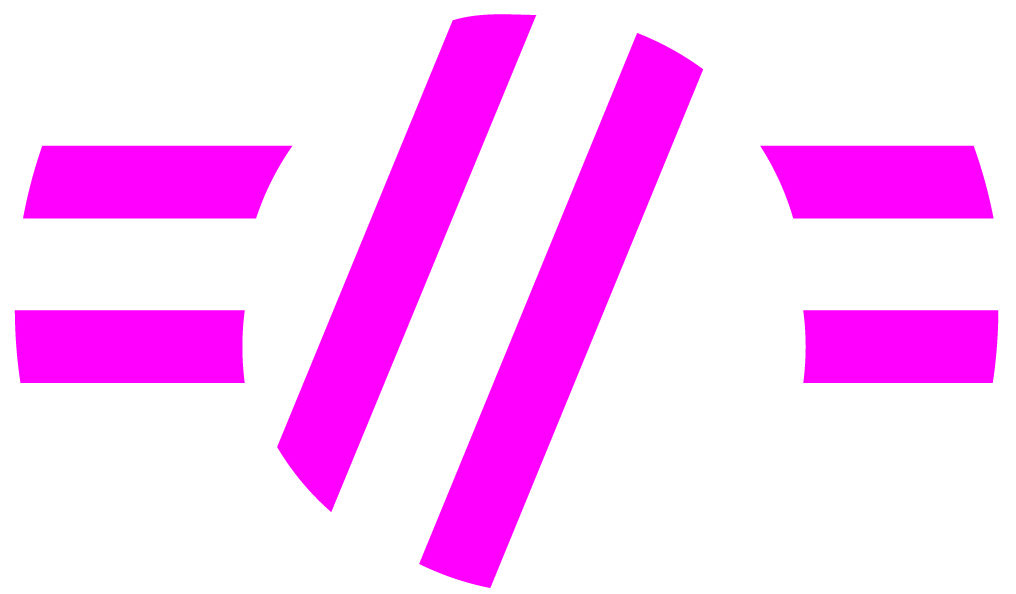2. (Online) Workshop: December 10 & 11, 2020
Queer / New Media: Rethinking Knowledge and its Failures
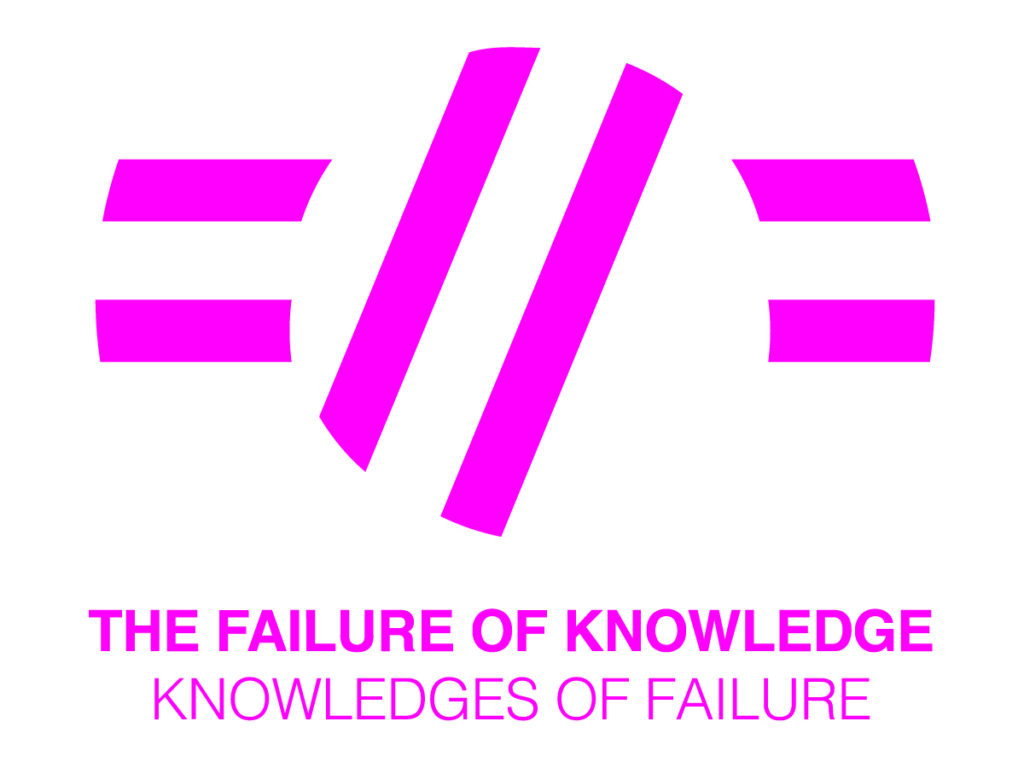
Due to the current pandemic, the second workshop of the network will also take place virtually.
The workshop will include a guest lecture open to the public.
- December 10, 2020, 4:00-5:30 p.m.
Prof. Dr. Robert Payne
(American University, Paris):
“The Queer Potential of Infrastructural Failure”
Please contact local organizer Dr. Katrin Horn to join the guest lecture by Prof. Payne.
Outline of the workshop:
The network “The Failure of Knowledge – Knowledges of Failure” seeks to examine the nexus of knowledge and failure in U.S. cultural history from a variety of theoretical vantage points and in historical perspective, while putting an emphasis on the current political and cultural moment. It is its aim to explore both the ‘failure of knowledge,’ i.e. the circumstances in which knowledge is ignored, challenged, or not accessible, as well as ‘knowledges of failure,’ that is, the specific knowledge of those considered or self-identifying as ‘failed.’ Each workshop is designed to shed light on a different angle or vantage point from which to consider these conditions and their contingency. This second workshop highlights queer studies – one of the key scholarly contexts in which failure has been recently re-evaluated – and new media – which continues to be discussed in terms of failures, specifically as regards the supposed lack of relevant or trustworthy knowledge they produce.
Both avenues of inquiry thus offer intriguing ways of thinking through knowledge and its failures. Some of the foundational texts of queer studies are built on epistemological concerns, most overtly Eve Kososky Sedgwick’s Epistemology of the Closet. Michel Foucault’s History of Sexuality, too, makes an argument for how knowledge forms subject positions and identities, often by defining them as failed. Additionally, queer studies has produced a wealth of scholarship dedicated to new notions of success, progress, and its opposite: negativity and failure. We may think of here of such texts as Feeling Backward by Heather Love, Lee Edelman’s No Future, and Jack Halberstam’s The Queer Art of Failure. Queer Theory therefore provides a particularly rich context for thinking through various modes of failed knowledge and the knowledge of failure.
New media, in turn, seem to offer simultaneously a utopia and dystopia of knowledge and failure/failed subject positions: a place where subjugated knowledges can thrive, yet also a place where facts ‘go to die.’ Social media in particular emerge as a place of refuge for those who cannot find community or information elsewhere (e.g. the uses of social media by LGBTQ youth), and the place where disinformation is spread with dangerous consequences for societies at large (e.g. extremism and radicalization also as consequences of “digital communities”). New media also have the potential to flatten the hierarchies of access to the production and distribution of information – yet also open new avenues for plagiarism, intellectual theft, and fraud. New media furthermore demand new literacies, new epistemologies potentially, and – as the keynote by Prof. Robert Payne will illuminate – they might also make newly visibly the structures on which the distribution and creation of knowledge depends.
This workshop therefore seeks to theorize knowledge generated in media forms not traditionally considered loci of knowledge production and/or knowledge created by or about queer subject positions via shared text discussions, project presentations, and a public keynote lecture.
Program of the workshop Queer / New Media: Rethinking Knowledge and its Failures
Short introduction to Prof. Payne’s lecture:
One of the most critically challenging and illuminating directions in media studies in recent years has been the so-called “material turn” which has encouraged more precise analysis of the objects, infrastructures, spaces, and labor which form concrete components of all media experiences but which are often obscured by a preoccupation with content. Infrastructures studies, which pays attention to what Lisa Parks has humorously characterized as “the stuff you can kick”, has proved especially valuable in shining light on systems of media distribution that are taken for granted yet contingent and incomplete. Principles and methods of queer theory can bring a particularly rich critical framework to studies of media materialities but have been significantly under-used in favor of studies of representation. This critical shift shows particular potential if we take seriously – and as inherently queer – the material instabilities and failures that haunt media systems and the unexpected emergences that arise from encounters with media which often confound how identifications and relations are articulated to media reception practices. Notably, queer affect studies have richly theorized the experiences of queer bodies that do not fit, are disoriented by or disarticulated from heteronormative protocols of time and space.
In this presentation, I will outline some of my current attempts to apply queer critique to sociotechnical infrastructures and to uncover the queer potential of infrastructural failure. In particular, building on what I have elsewhere called “lossy media” (Payne 2018), I will explore the possibility of a queer theory of media formats. Formats have been identified in media studies scholarship as normative and taken-for-granted yet contingent protocols that fit a given medium to ensure its smooth operation. But how do we account for formats that do not fit? What emerges from an encounter with a medium for which other format protocols were prescribed or for which standards have moved on? A queer theory of formats might offer a way of accounting for the strange, generative potential of aesthetic and affective experiences of queer format fits.
3. (Online) Workshop: June 10 & 11, 2021
Embodied Knowledges & the Failures of Neoliberal Work Culture
Due to the current pandemic, the third workshop of the network will also take place virtually.
The workshop will include two guest lectures open to the public.
- June 10, 2021, 6:00-7:30 p.m.
David T. Mitchell & Sharon L. Snyder
(George Washington University):
“What We Talk About When We Talk About Disability” - June 11, 2021, 11:00 a.m.-12:30 p.m.
Mita Banerjee
(Johannes Gutenberg University Mainz):
“Life Writing, Writing Life: From Benjamin Franklin to Mitchell Levitz’ and Jason Kingsley’s Count Us In“
Enter here, to get access to the online lectures. Check out the program for more information.
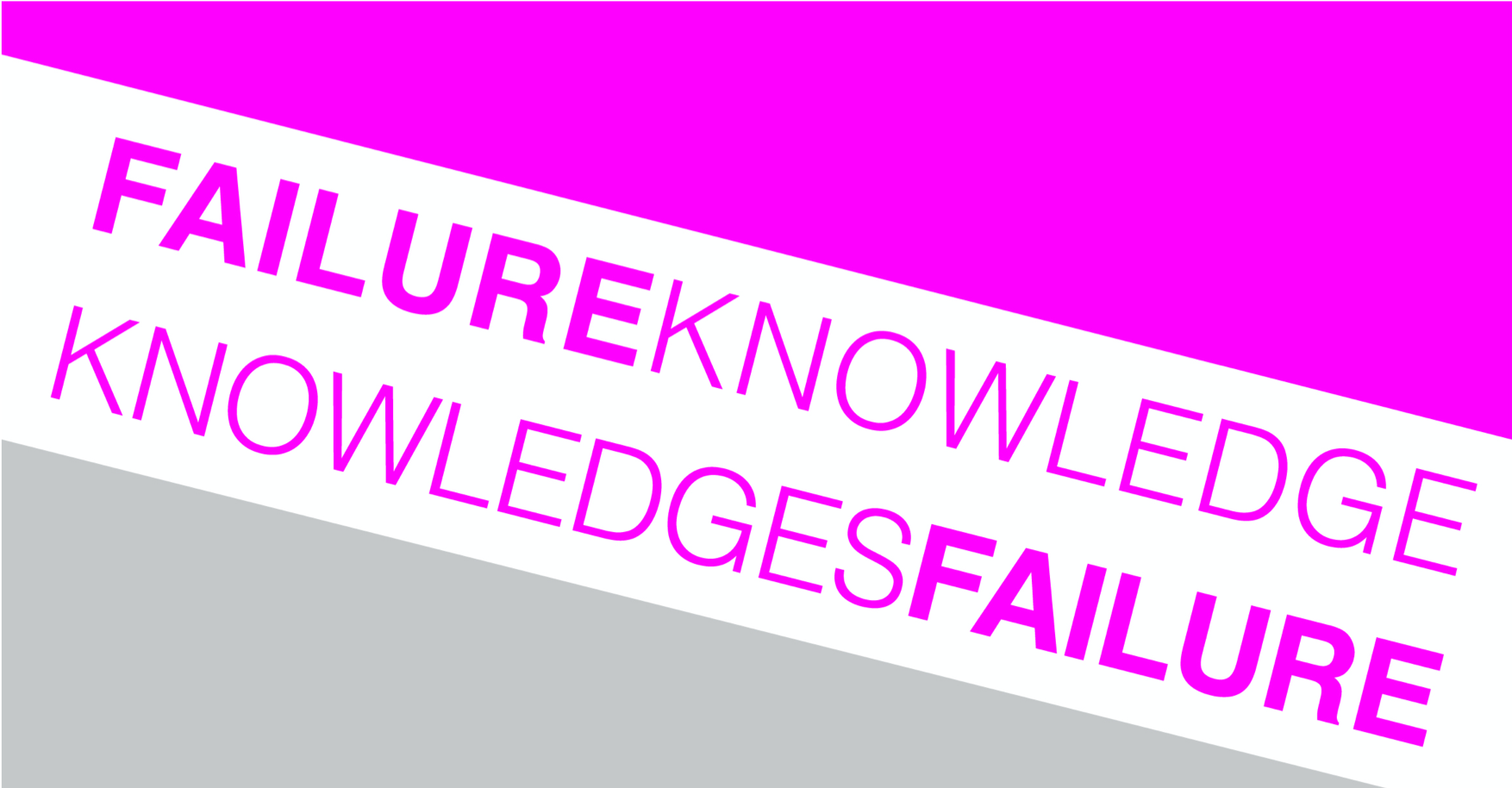
Short Outline:
The workshop “Embodied Knowledge & the Failures of Neoliberal Work Culture” investigates the potential of disability narratives to shed critical attention on the failure of contemporary work cultures to accommodate disabled bodies. In doing so, we explore how representations of ‘unproductive’ bodies uncover not only the fragility and precariousness of neoliberal notions of efficient laboring bodies, but especially how they imagine alternative, more inclusive work environments.
4. Workshop: November 10-12, 2021
The Failures of Institutional Knowledge
The fourth thematic workshop of the DFG research network “The Failure of Knowledge – Knowledges of Failure” addresses the dynamics of knowledge production within and among social institutions. With sustained challenges from divergent political actors to the ideal of knowledge as rational, objective, and universal, the university as the prime locus of modern knowledge production faces increased pressure to adapt its scholarly protocols and its public mission to the twenty-first century. Members of the research network along with invited speakers will use this meeting to explore how literary and cultural studies can address the entanglement of knowledge and institutions by way of critique, historicization, theorization, and self-reflection regarding the institutional role of the humanities. For the first time, the network members meet in Berlin for a workshop in person. Due to the Corona restrictions, the public keynotes and panel discussion will be open to the public as hybrid events and streamed via Webex.
Public Keynotes and Panel Discussions
Kathleen Fitzpatrick
(Michigan State University)
“Failures of Leadership: Rethinking the University in the United States“
Public Panel Discussion
“Failures of the Neoliberal University“
Discussants:
Katharina Motyl, Regina Schober, Kathleen Fitzpatrick, Aliyyah Abdur-Rahman, Anja Schwarz
Aliyyah Abdur-Rahman
(Brown University)
“On Refuge and Black Refusal“
How to join on Webex Events
Please click the link to join the online stream on Webex Events (no prior registration necessary).
November 10, 2021
Keynote I: Kathleen Fitzpatrick, “Failures of Leadership: Rethinking the University in the United States”
Link: https://fu-berlin.webex.com/fu-berlin-en/j.php?MTID=mad588dbf0bacb28c99c58a7bc93fa9a7
November 11, 2021
Public Panel & Keynote II: Aliyyah Abdur-Rahman, “On Refuge and Black Refusal”
Link: https://fu-berlin.webex.com/fu-berlin-en/j.php?MTID=m3af734c4b9eedf1a951caf117db08713
Check out the program for more.
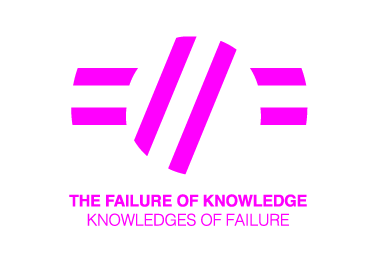
5. Workshop: April 21 & 22, 2021
The Subjugated/Subversive Knowledges of ‘Failed Individuals’ and Questions of Affect vs. Knowledge
A workshop of the DFG research network “The Failure of Knowledge – Knowledges of Failure.” Hosted by the Institute for English and American Studies at FAU Erlangen-Nürnberg, organized by Marius Henderson, Molina Klingler (University of Würzburg), and Marlon Lieber (Christian- Albrechts-University Kiel).
Public Keynotes
Susan J. Matt
(Weber State University)
“Feelings, Failures, and Self-Reliance in U.S. History“
Iyko Day
(Mount Holyoke College)
“Nuclear Antipolitics and the Queer Art of Logistical Failure“
How to join
Please contact Lukas Fender to join the keynotes via zoom.
Check out the program for more.
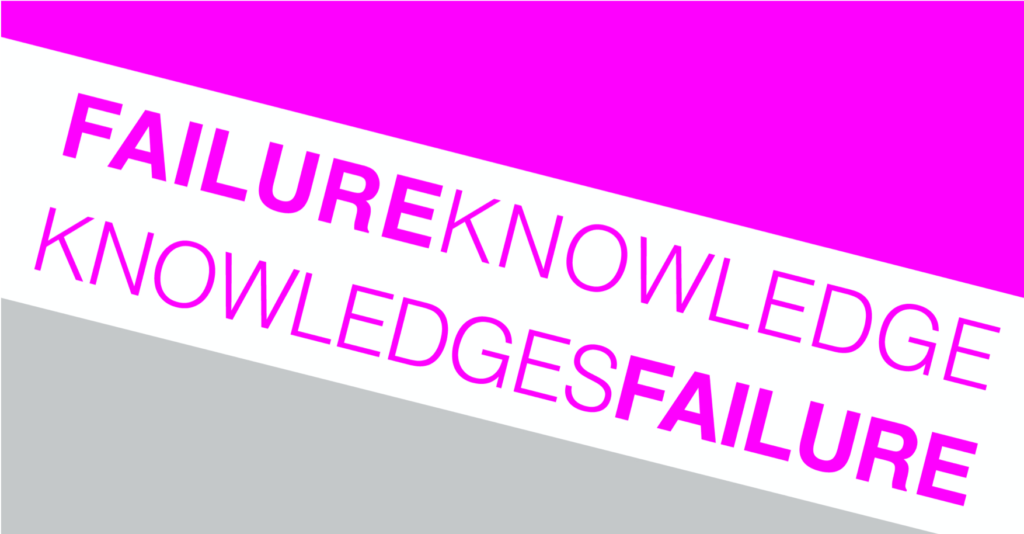
Online Panel Discussion: May 18, 2022
Wissenschaftsleugnung und ihre digitalen Logiken
The issue of science denial has become even more virulent in light of the pandemic. Deniers of the corona virus reject the findings of empirical life and natural sciences, and thus follow the same logic that deniers of climate change brought to the table at the beginning of the 21st century. Historically, denigrations of gender studies as pseudoscientific go back much longer. What do corona and climate change denial have in common with anti-genderism? And what role have digital media environments and ‘discourse forms’ played in the rise of these forms of science denial? The speakers will explore these and other questions in impulse presentations and in the subsequent discussion among themselves and with the audience.
Hard Facts
May 18, 2022, 6.00 – 7.30 p.m.
Discussants:
Paula-Irene Villa Braslavsky
(Soziologie/Gender Studies, LMU)
Jörg Radtke
(Politikwissenschaft, Universität Siegen)
Simon Strick
(Amerikanistik/Medienwissenschaft, ZeM Brandenburg)
Moderation: Katharina Motyl (Amerikanistik, Univ. Mannheim)
The event will be held in German.
How to join
Please contact Lukas Fender to join the keynotes via zoom.
Check out the program for more.

7th Workshop “Digital Failures”: October 20 & 21, 2022
A workshop of the DFG research network “The Failure of Knowledge – Knowledges of Failure.” Hosted by the Institute for English and American Studies at University of Duisburg-Essen.
Keynotes
Kavita Philip
“The Pirate Function”
Rosa Menkman
“A Decade after the Glitch Moment, Some Reflections”
Check out the program for more.

